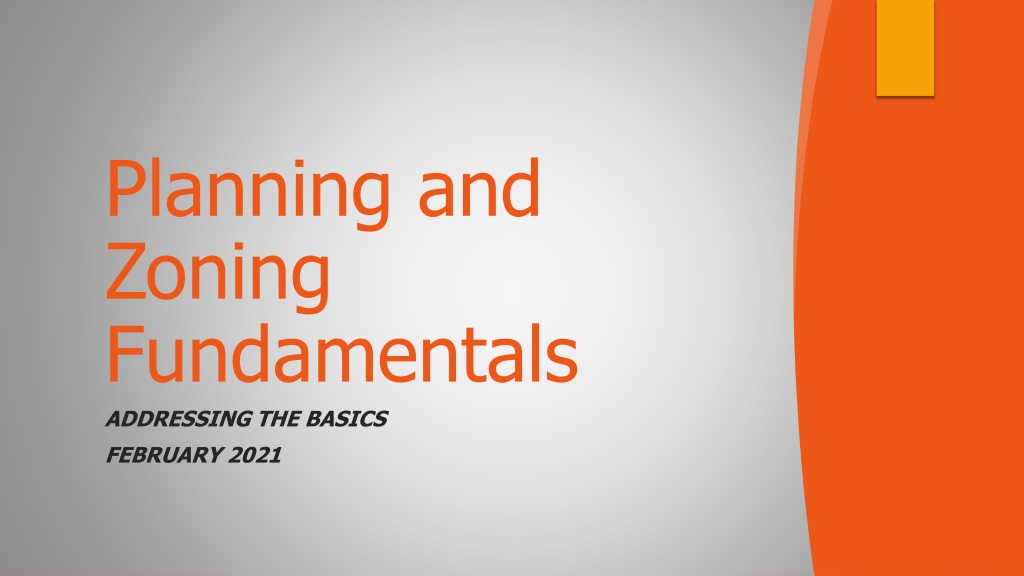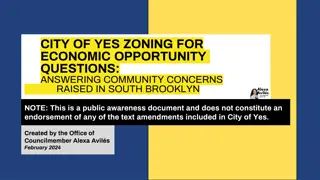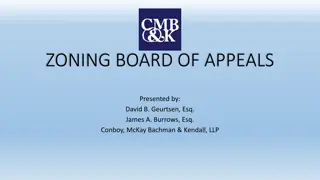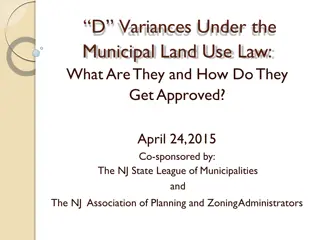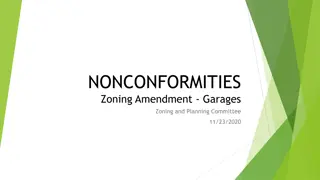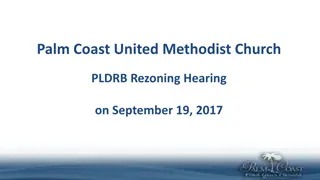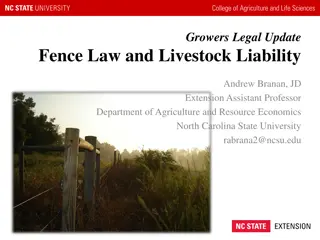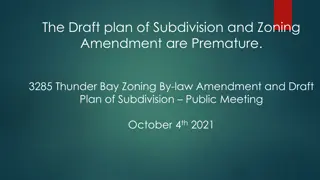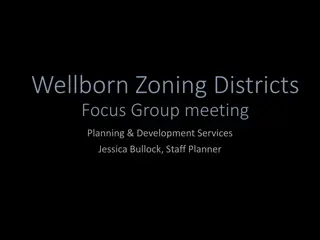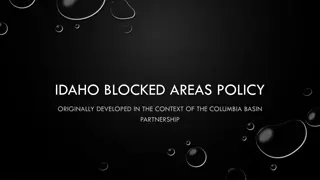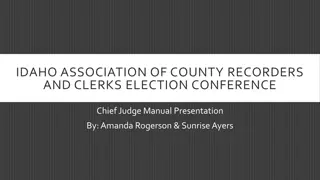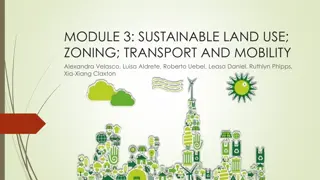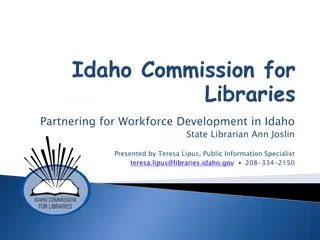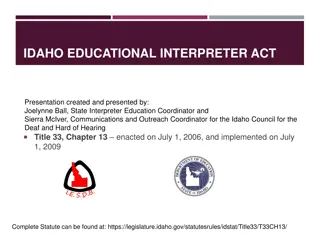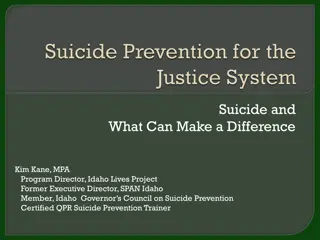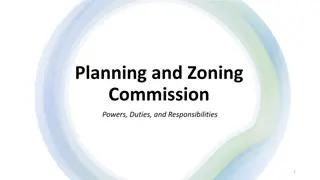Understanding Planning and Zoning Fundamentals in Idaho
Exploring the essential aspects of planning and zoning, this resource delves into the responsibilities of cities and counties, the duties of county commissioners, and the importance of a comprehensive plan in Idaho. It emphasizes the need for well-trained planning and zoning commissions, the management of liability exposure, and the significance of clear decision-making standards. By highlighting the key elements required by Idaho law, this resource aims to enhance understanding and efficiency in the planning and zoning processes.
Download Presentation

Please find below an Image/Link to download the presentation.
The content on the website is provided AS IS for your information and personal use only. It may not be sold, licensed, or shared on other websites without obtaining consent from the author. Download presentation by click this link. If you encounter any issues during the download, it is possible that the publisher has removed the file from their server.
E N D
Presentation Transcript
Planning and Zoning Fundamentals ADDRESSING THE BASICS FEBRUARY 2021
Every city and county must plan and zone. Cities and Counties Obligated Idaho Code 67-6503 No direct state involvement. No direct penalty for failure to comply many consequences
Basic Duties County Commissioners Establish county policy Implement policy through lawmaking Decide appeals Respond to P-Z ideas Chairman Appoints P-Z members, subject to confirmation P-Z Commission Source of ideas/suggested policies Mandated to conduct hearings Advisor to BoCC Can make decisions that don t require ordinance to implement (plus subdivisions)
Diligent and well-trained? Is your Planning and Zoning Commission Adding Value? Treat public well Have you watched them in action? Are you making all final decisions? Do you want to? Do you have constant turnover? Too much/Too little?
Treat the citys liability exposure as your own Your service is protected by the Idaho Tort Claims Act in the course and scope of your public duty Same is true for civil rights lawsuit exposure Follow the procedural advice of legal counsel Generally not insured not accidental Don t allow discriminatory comments to go unchallenged Liability and Public Service
Comprehensive Plan Expression of Policy Foundation for everything else Zoning ordinance guided by policy in Plan Subdivision ordinance Standards ordinance Do you have clear standards for decision? Does everyone understand decision criteria? Applicant? Neighbors? How Do The Pieces Work?
Planning commission (or governing board) must conduct comprehensive planning process. Comprehensive Plan Required Idaho Code 67-6508 Must include all land within jurisdiction. Consider current conditions, future goals, etc. Must include all 17 elements unless explain why one or more is unneeded.
Comprehensive Plan Essentials Policies that will result in efficiencies in the long run Policies the affect your operations Keep plan concise use appendices to update data sources Keep consultants on a short leash plan can become 100 s of pages Know what matters when you start
Procedures mirror comprehensive plan. Zoning must be in accordance with comprehensive plan policies serves to implement plan Purposes: Minimize conflicts with established/planned uses Compatible with infrastructure Zone change granted at request of owner, can t be changed for four years without owner s consent. Zoning Ordinance Required Idaho Code 67-6511
To reflect change of reality are policies consistent? When request to change makes the community better Why Change Zones? To match available infrastructure Be aware that zone changes can bring about land use changes that can bring about costs
Works in conjunction with Title 50, Chapter 13. (platting) Adoption and amendment of subdivision ordinance requires public hearing. Hearings not required for individual subdivisions. But if you have hearings Ordinance can provide for mitigation of effects, but fees must accord with development impact fee statute. Administration is critical need clear standards Subdivision Ordinances Authorized Idaho Code 67-6513
State law doesnt require a public hearing for a subdivision Almost everyone has one sometimes two What question is posed for each hearing? Subdivision Procedures For county or city comply with ordinance? For residents Do you want a subdivision? What alternatives are possible? No public hearing Solicit written comments Focus public hearings on decision issues
Development Standards Idaho Code 67-6518 Authorizes adoption of standards for many development- related purposes. Be cautious of adopting standards by reference only national codes. A necessary complement to a subdivision or zoning ordinance. Care should be taken to see that standards are current and consistent with national codes.
Local Land Use Planning Act (LLUPA) started as purely legislative 1980 Supreme Court held that site-specific land use decisions are quasi-judicial Enacting or amending ordinances legislative actions How are legislative and quasi- judicial matters treated differently? Basic Decision- making
Public Hearing Process Introduction and explanation Presentation by applicant Reading comments on sign-up sheets (from non- speakers) Testimony by supporters (more at conclusion?) Testimony by neutrals (more at conclusion?) Testimony by opponents (more at conclusion?) Rebuttal by applicant
From Criteria to Decision Ordinance should include criteria for each type of decision Application form should ask applicant to demonstrate compliance Record should include relevant facts and applicable law Decision should determine whether standards are met Final decision needs to be in writing more than just minutes Consider use of hearing examiner
